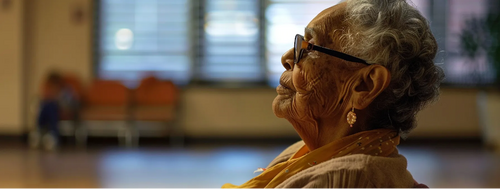
14 Sep Resources for Caring for an Elderly Family Member
As our loved ones age, the need for attentive and compassionate care becomes essential. Navigating the maze of elderly care options can seem daunting, but with the right guidance and resources, providing the best care possible is attainable. From in-home care to community support and financial aid, there are many avenues to explore. In this article, we’ll delve into some of the key resources that can assist in the care of your elderly family member.
Exploring In-Home Care Options for Elderly Family Members

When it comes to the well-being of elderly family members, maintaining the comfort of home is often a top priority. In-home care services cater to this preference by providing professional assistance in the familiar environment of the individual’s residence. This option not only preserves a sense of independence but also offers a personalized level of care that can adjust as needs change over time.
In-home care encompasses a range of services, including personal care, medical needs, and even companionship. It’s crucial to assess the level of care required, as this will determine whether a certified health professional, a nursing assistant, or a caregiver will be the most suitable option. Research and due diligence are essential to find the right fit for both the family and the elderly individual’s needs.
One must also consider the financial aspect of in-home care. While it is a more personalized service, costs can accumulate. However, many families find that the trade-offs, such as the enhanced quality of life and personal attention, justify the investment. An adult medical day care in Belleville, NJ, or your area can provide a suitable balance by offering professional daycare services that can complement in-home care arrangements.
Utilizing Community Resources To Support Elderly Care

Community resources can play a significant role in supporting families who are caring for an elderly relative. Local senior centers, non-profit organizations, and support groups offer invaluable services ranging from recreational activities to educational workshops. These resources can provide social engagement and cognitive stimulation that are crucial for maintaining the mental health and general well-being of the elderly.
Transportation services are another vital aspect of community support, enabling elderly individuals to maintain their independence by attending medical appointments, going shopping, or participating in social events. Similarly, medically tailored meals in Los Angeles or your area can ensure that dietary needs are met with convenience and care.
Engagement with community resources not only relieves some of the care burdens from families but also enriches the lives of the elderly. A well-connected approach to utilizing these services fosters a supportive network that benefits everyone involved.
Technology and Tools for Managing Elderly Care at Home

As the elderly population grows, technology continues to advance, offering novel ways to monitor and care for loved ones. Modern tools like medical alert systems, electronic medication dispensers, and health-monitoring wearables provide peace of mind and foster autonomy among the elderly.
Remote monitoring platforms allow caregivers and family members to keep tabs on the senior’s health and well-being without being intrusive. Such systems can detect irregular activity or falls, alerting emergency services and family members when necessary. Such technological support can be crucial in keeping elderly individuals safe while alone at home.
Technology, when used wisely, can significantly enhance the caregiving process. It offers a blend of safety, convenience, and efficiency that can be tailored to the unique needs of each elderly individual, making it an indispensable component of contemporary elderly care strategies.
Legal Considerations When Planning for Long-Term Elderly Care
Legal planning is an essential aspect of long-term care for elderly family members. Establishing power of attorney, creating living wills, and exploring guardianship are just a few steps that can protect the rights and wishes of the elderly. These legal documents ensure that decisions about healthcare, finances, and property are managed according to their preferences.
Legal considerations also extend to the eligibility of certain care programs. Proper documentation and planning can affect what services an elderly individual can access and what benefits they may receive. Families should work with elder law attorneys or legal advisors who specialize in aging issues to navigate these complex waters.
Overall, the task of providing care for an elderly family member requires comprehensive planning and access to a variety of resources. By exploring in-home care options, utilizing community resources, seeking financial assistance, leveraging technology, and addressing legal concerns, families can create a supportive and sustainable care environment. It’s a journey that entails patience, research, and a profound commitment to the dignity and quality of life for our cherished elders.
—————-
The information on MedicalResearch.com is provided for educational purposes only, and is in no way intended to diagnose, cure, or treat any medical or other condition.
Some links may be sponsored. Products, included compounded prescriptions above are not warranted or endorsed.
Always seek the advice of your physician or other qualified health and ask your doctor any questions you may have regarding a medical condition. In addition to all other limitations and disclaimers in this agreement, service provider and its third party providers disclaim any liability or loss in connection with the content provided on this website.
Last Updated on September 17, 2024 by Marie Benz MD FAAD
